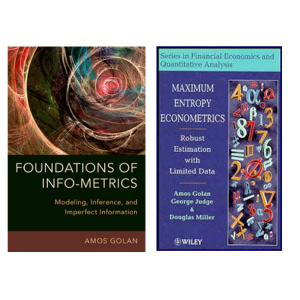Amos Golan: What Information Theory Brings to Modeling and Inference
This event has now finished.
A/D271 above Alcuin Porters
Event details
Abstract: The available information is usually too complex, insufficient and imperfect to deliver a unique solution for most economic modeling and inference problems. Information Theory within a constrained optimization setup provides a way to deal with complexity under such deep uncertainty. It provides us with a way to sort and rank solutions and then choose the one that satisfies our desired properties. As such, it provides us with a different way of thinking about solving complex economic problems and a way to nest models in terms of the information and decision criteria they use. It also provides new insights into economic modeling and allows us to solve inference problems that cannot be solved with conventional methods. Though Information Theoretic inference provides us with a general framework for inference (I call it, info-metrics), the exact specification is problem-specific. In this talk I will discuss the basic idea of infometrics via a number of graphical representations of the theory and will then provide a number of examples. I will also discuss the way some other traditional approaches fit within that framework (such as partial identification and misspecification) and some of the benefits of combining classical and information-theoretic econometric modeling.
Key Words: Complex Data, Constrained Optimization, Deep Uncertainty, Entropy, Inference, Information Theory, Modeling
Host: Takashi Yamagata

